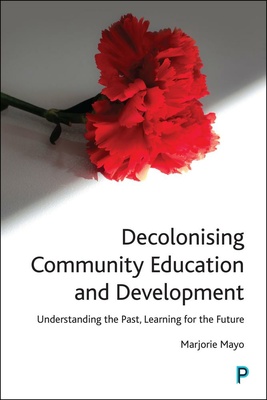Black History Month provides a vital wake-up call, reminding us of the richness of Black contributions to British history and to British culture and the arts more specifically.
David Olusoga and his brothers Yinka and Kemi Olusoga’s latest book ‘Black History for Every Day of the Year’ celebrates Black ingenuity and creativity alongside stories of racism and oppression, resistance and celebration on an international scale.
These reminders could scarcely be timelier. Black history does indeed need to be celebrated. But Black history isn’t simply an add-on, to be taken off the shelf and noted once a year, before being put firmly back in its place. On the contrary, in fact, Black history is inextricably linked with White history – especially in Britain, given our colonial heritage. Our pasts have been closely interwoven from way back. Just walk into so many of our museums, displaying the spoils of imperial plunder, such as the magnificent Benin bronzes in the British Museum. Or think about the provenance of that most stereotypically English beverage, a nice cup of tea (Indian or Chinese, or maybe East African?).
‘We are here because you were there’, as these interwoven relationships have been so succinctly summarised.
But Britain still has prominent politicians who seem to be in denial, blaming the left for denigrating our history and pulling down our monuments – rather than coming to terms with our imperial past. Worse still, culture warriors have been describing some cultures as having more validity than others – as Kemi Badenoch, contestant for the leadership of the Conservative Party, has recently claimed. Is it, by implication, so-called ‘British culture’ that is to be placed at the summit of this hierarchy – celebrating White supremacy, and those who identify with White supremacy, in other words?
If these were simply verbal sallies, they might seem merely absurd, further evidence of some politicians’ distance from the realities of multicultural Britain today. But they are not just words. Politicians’ pronouncements can – and do – have practical effects, as the disturbances in English towns and cities so clearly demonstrated this summer. When vulnerable asylum seekers are threatened by mobs attempting to burn their accommodation down, it is time to address the underlying causes. How should we promote community cohesion and social solidarity in response to cultural warriors who deny the realities of Britain’s past as they spread their pronouncements of hate?
Community education (including museum education) and community development strategies have contributions to make here – without in any way claiming that such interventions could provide comprehensive solutions on their own. They can’t of course. But they do have something to offer all the same.
Communities’ frustrations and anxieties need to be taken seriously, especially in the context of the cost-of-living crisis and continuing austerity, as resource-starved public services struggle to meet rising social needs. Resentments breed in this climate, with increasing polarisation, fanned by populist vitriol.
Community-based education can explore these issues through processes of mutually respectful dialogue, supporting communities to develop alternative ways of addressing them based on mutual understanding and shared concerns. This involves coming to terms with the past and the ways in which the past has been shaping the present, and finding ways of identifying interests in common, rather than engaging in mutually destructive forms of negative stereotyping.
Community education and development need to be understood in the context of their own histories too, deeply affected, as they have been, by the ways in which they were promoted by British governments, in support of colonial agendas, in the past. Yet there were counterhistories too, alternative stories of adult education and community-based support for movements for colonial freedom and democracy.
Community-development programmes were promoted in Britain from the late 1960s, aiming to tackle poverty and deprivation, but also to manage racial tensions in the wake of Enoch Powell’s infamous ‘rivers of blood’ speech in 1968, which stirred up hatred in response to migration from Britain’s former colonies in the Caribbean and the Indian subcontinent. Here too, the results were varied and contested, however. The government’s Community Development Project produced critical analyses of the underlying causes of people’s problems in the ‘inner city’ areas (not that the problems were actually confined to these areas), along with a range of initiatives and campaigns, in response.
But adult community education has been decimated in recent years, and so have community-based initiatives to promote active citizenship and community engagement. So many projects have lost workers or been forced to close down altogether, over this period of austerity. Meanwhile, culture warriors proceed to spread their messages of hate, further undermining community cohesion and social solidarity in the process.
Black History Month reminds us of the vital importance of promoting alternatives to these contemporary challenges, celebrating Black achievements and cultures, while understanding the ways in which our different histories, cultures and communities intertwine.
Marjorie Mayo is Emeritus Professor of Community Development, Goldsmiths, University of London.
 Decolonising Community Education and Development by Marjorie Mayo is available on the Bristol University Press website. Order here for £27.99.
Decolonising Community Education and Development by Marjorie Mayo is available on the Bristol University Press website. Order here for £27.99.
Bristol University Press/Policy Press newsletter subscribers receive a 25% discount on our books – sign up here.
Follow Transforming Society so we can let you know when new articles publish.
The views and opinions expressed on this blog site are solely those of the original blog post authors and other contributors. These views and opinions do not necessarily represent those of the Bristol University Press and/or any/all contributors to this site.
Image credit: Danielle Suijkerbuijk via Unsplash


